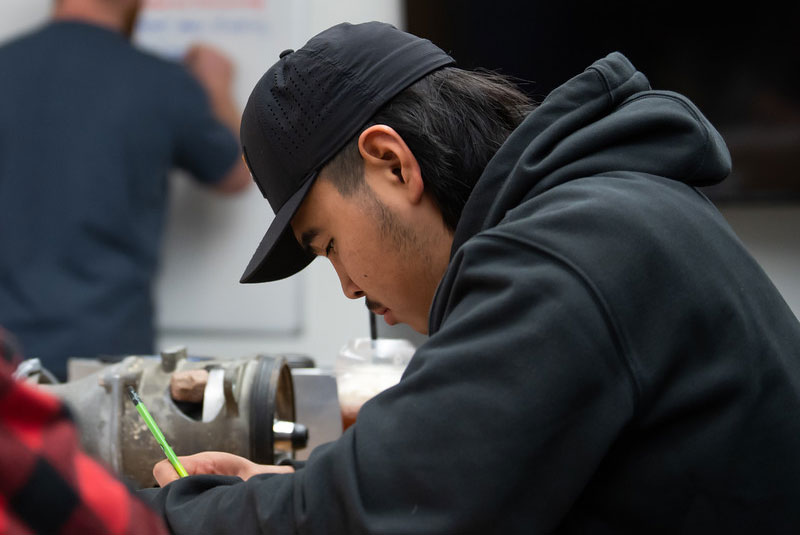Class spotlight: Sam Campbell's Global Literature and Culture class
by V. Heisser |
One student, Chapin, introduced More's life and the historical context of Utopia. This led to a lively discussion in which students examined key passages and shared insights on ideal societies, justice, and equality.
Tim Derbridge, another student, explained that the Global Literature and Culture course offers an expansive look at literary texts that have held a significant and influential place in various societies around the globe.
Tim enjoys how this course interprets Ancient, Medieval, and Renaissance texts to explain past civilizations. Students gain deeper insights into their societies during lectures by reading these works in their historical context. This analysis offers a broader perspective on global civilization, highlighting cultural similarities and differences and the influence of these past civilizations on our own.
Tim finds the discussion portion of each class the most engaging. Students share their thoughts on the texts, referencing passages and exploring diverse perspectives. They also discuss the historical context of these texts, using their research and lectures to deepen their interpretations.
Tim expressed, "The biggest takeaway I've gained from this class—more so than any other—is the wealth of information and history concealed within the literature of the past. Many of the texts we have read have had fantastical and mystical characterizations of the world, yet each author's voice can still be heard in such a manner that allows us to interpret how the real world may have been at that time."
In Sam's class, students are challenged to examine themes of world literature and discuss
their historical, cultural, and contemporary significance. Sam explained, "Throughout the course, students evolve their definitions of what literature
is---ascertaining that the texts from ancient civilizations often grapple with similar
themes we find in today's books, movies, and television shows. By dissecting concepts
such as emotionality, universality, and mortality in these works, class discussions
cultivate empathy and understanding of the historical and contemporary cultures in
which these texts were disseminated."









